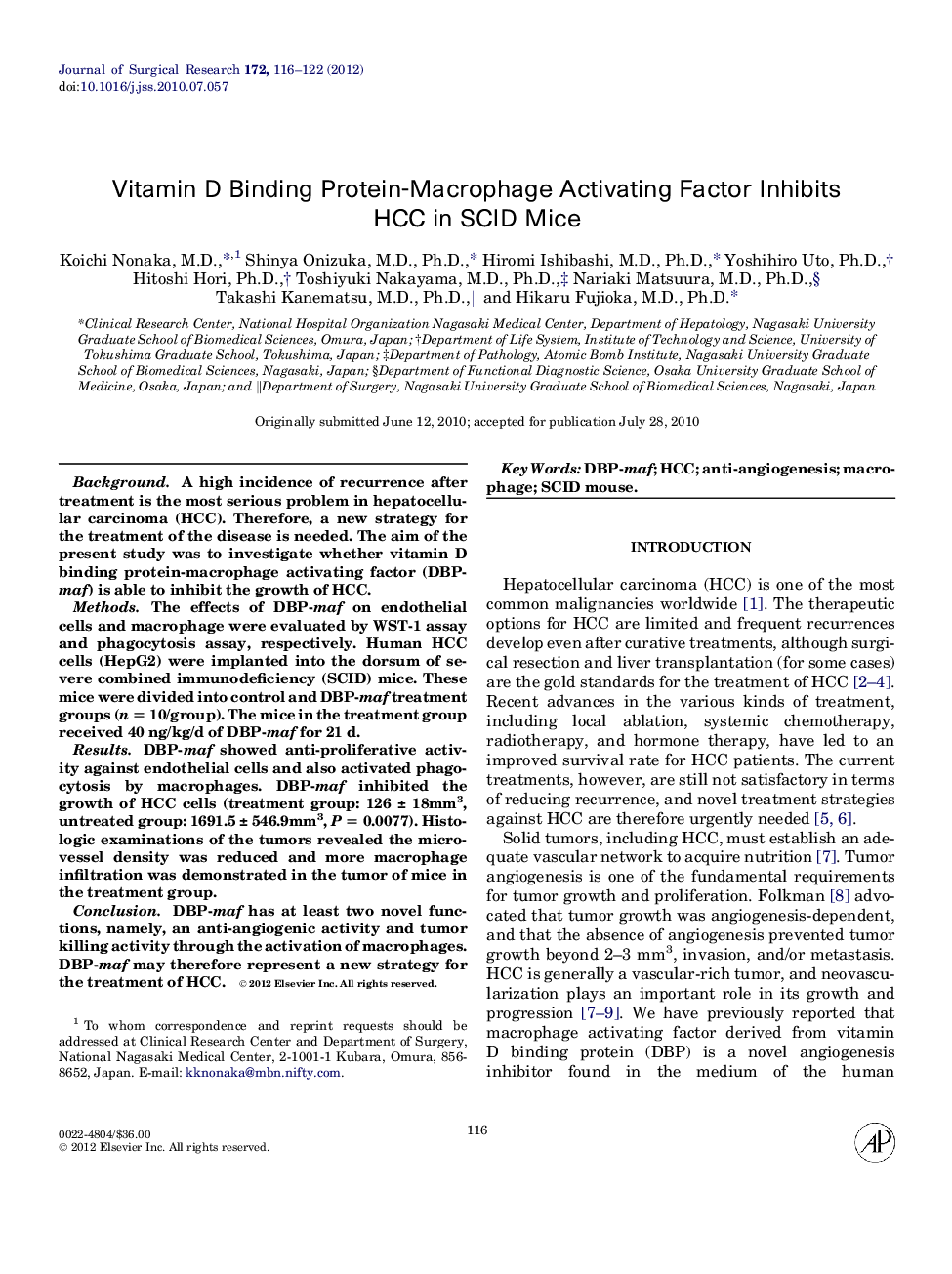| Article ID | Journal | Published Year | Pages | File Type |
|---|---|---|---|---|
| 4301990 | Journal of Surgical Research | 2012 | 7 Pages |
BackgroundA high incidence of recurrence after treatment is the most serious problem in hepatocellular carcinoma (HCC). Therefore, a new strategy for the treatment of the disease is needed. The aim of the present study was to investigate whether vitamin D binding protein-macrophage activating factor (DBP-maf) is able to inhibit the growth of HCC.MethodsThe effects of DBP-maf on endothelial cells and macrophage were evaluated by WST-1 assay and phagocytosis assay, respectively. Human HCC cells (HepG2) were implanted into the dorsum of severe combined immunodeficiency (SCID) mice. These mice were divided into control and DBP-maf treatment groups (n = 10/group). The mice in the treatment group received 40 ng/kg/d of DBP-maf for 21 d.ResultsDBP-maf showed anti-proliferative activity against endothelial cells and also activated phagocytosis by macrophages. DBP-maf inhibited the growth of HCC cells (treatment group: 126 ± 18mm3, untreated group: 1691.5 ± 546.9mm3, P = 0.0077). Histologic examinations of the tumors revealed the microvessel density was reduced and more macrophage infiltration was demonstrated in the tumor of mice in the treatment group.ConclusionDBP-maf has at least two novel functions, namely, an anti-angiogenic activity and tumor killing activity through the activation of macrophages. DBP-maf may therefore represent a new strategy for the treatment of HCC.
